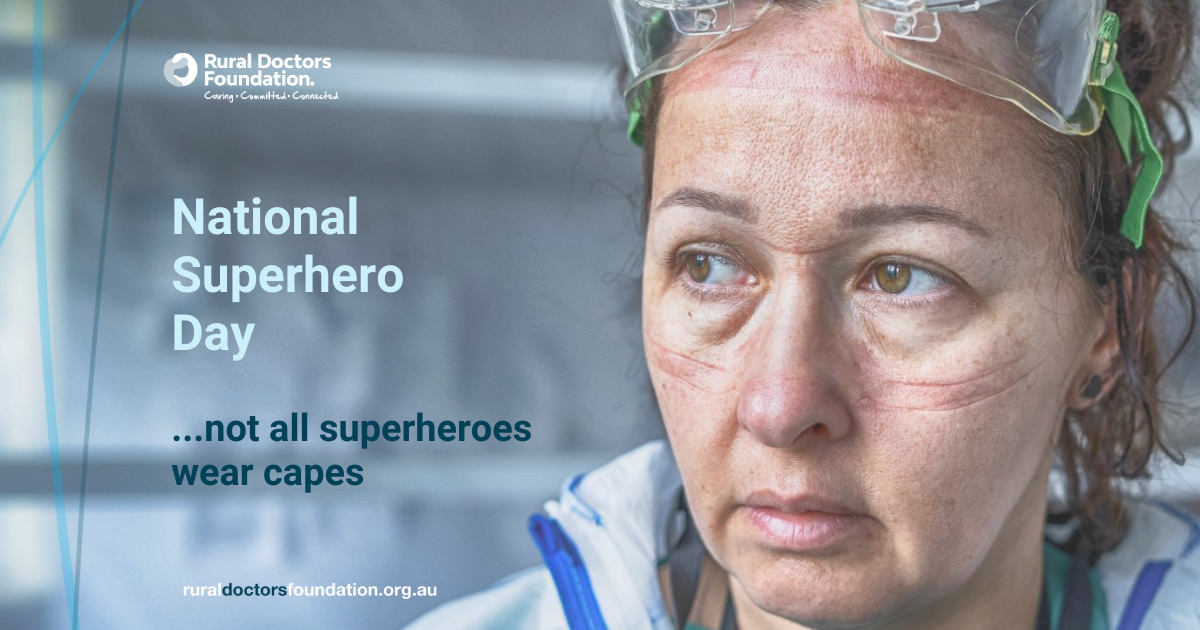Bowel cancer, also known as colorectal cancer, is a prevalent and potentially life-threatening disease that affects 1 in 13 Australians by the time they reach 85. It’s the second biggest cause of cancer deaths in Australia, which highlights the importance of early detection and prevention in improving survival rates. Rural Doctors Foundation encourages Australians particularly those remotely to find out more about bowel cancer.
Bowel cancer occurs in the colon or rectum, and typically begins as a polyp, a small growth on the inner lining of your bowel. Over time, these polyps can develop into cancer. While the exact cause of bowel cancer is not fully understood, there are a few factors that can increase your risk of developing bowel cancer.
What increases your risk of bowel cancer?
- Age – the risk of developing bowel cancer increases with age, with the majority of cases occurring in people over the age of 50.
- Family history and genetics – having a family history of bowel cancer or certain hereditary conditions such as familial adenomatous polyposis (FAP) or Lynch syndrome (hereditary non-polyposis colorectal cancer), can significantly increase your risk.
- Inflammatory bowel diseases – chronic conditions such as ulcerative colitis and Crohn’s disease, which causes inflammation in the colon, can increase the risk of bowel cancer.
- Diet – a diet high in red and processed meats as well as low in fiber, fruits and vegetables is associated with an increased risk of bowel cancer.
- Lack of physical activity: Having a sedentary lifestyle and insufficient physical activity has been linked to a higher likelihood of developing bowel cancer.
- Smoking – Smoking tobacco is a risk factor for bowel cancer, as it introduces harmful chemicals into the body that can damage the colon’s cells.
- Excessive alcohol consumption – consuming excessive amounts of alcohol, especially on a regular basis, can increase the risk of developing bowel cancer.
What are some symptoms of bowel cancer to look out for?
- Changes in bowel habits – persistent changes in bowel habits, such as diarrhoea, constipation, or a change in the consistency of stools should be further investigated.
- Blood in the stool – the presence of blood in the stool, whether bright red or darker in colour, can be an indicator of bowel cancer.
- Abdominal pain – persistent abdominal pain, discomfort, or cramping that is not associated with other known conditions should be evaluated by a healthcare professional, since it could be caused by bowel cancer.
- Unexplained weight loss – significant, unexplained weight loss that occurs without changes in diet or physical activity should be investigated.
- Fatigue – Persistent fatigue or weakness that cannot be attributed to other factors may be a symptom of bowel cancer.
If you have any concerning symptoms, especially if you have risk factors, it is a good idea to visit your GP to further investigate these symptoms and seek treatment if needed.
What are the different types of bowel cancer?
Bowel cancer can manifest in different types, each with distinct characteristics. Treatment depends on factors such as the stage of cancer, its location, and the individual’s overall health. Outlined are some of the main forms of bowel cancer:
- Adenocarcinoma – the most common type of colorectal cancer, adenocarcinomas originate in the cells that line the inner surface of the colon and rectum, and account for the majority of bowel cancer cases.
- Gastrointestinal Stromal Tumour (GIST) – this rare type of bowel cancer starts in specialised cells in the wall of the gastrointestinal tract. GISTs are less common than adenocarcinomas.
- Lymphomas – although rare, lymphomas can affect the bowel. Theses cancers originate in the lymphatic system and can involve the colon or rectum.
- Carcinoid tumours – these tumours are less common and tend to grow slowly. Carcinoid tumours often originate in hormone-producing cells of the bowel.
What are the treatment options for bowel cancer?
The treatment approach for bowel cancer differs from case to case, and can vary based on the type, location, and stage of the cancer, as well as your overall health. Treatment options can include:
- Surgery – the primary treatment for a localised bowel cancer involves the surgical removal of the tumour and surrounding healthy tissue. The extent of surgery can depend on the cancer’s location and stage. In some cases a colostomy or ileostomy may be performed to redirect the bowel.
- Chemotherapy – chemotherapy involves the use of drugs to kill cancer cells or stop their growth. It is often recommended after surgery to eliminate any remaining cancer cells or to shrink tumours before surgery.
- Radiotherapy – radiotherapy uses high-energy beams to target and destroy cancer cells. It is commonly used in conjunction with surgery and/or chemotherapy to treat rectal cancer.
- Targeted therapy – targeted therapies focus on specific molecules involved in cancer growth and progression. These drugs may be used in combination with chemotherapy for advanced bowel cancer.
- Immunotherapy – immunotherapy stimulates the body’s immune system to identify and destroy cancer cells.
For more information and support related to bowel cancer, visit your GP or access resources from organisations including:
- Bowel Cancer Australia (bowelcanceraustralia.org)
- Cancer Council Australia (cancer.org.au)
- Cancer Australia (canceraustralia.gov.au)





